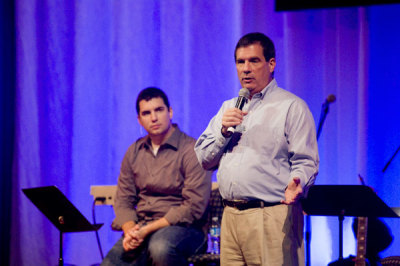7 Reasons Some Church Members Don't Want Their Churches to Grow
It is highly unusual to hear church members say that they don't desire their churches to be obedient to the Great Commission. Indeed, it is common for the members of a pastor search committee to tell a prospective pastor that they are looking for a leader who will guide the church toward growth.

And most church members do desire to see their churches grow . . . until the growth affects them. It is at that point they can become disillusioned and critical.
So what is it about growth that impacts some members negatively? Let me suggest seven reasons.
1. Loss of familiarity. When a church is growing, it becomes a different church over time. The difference is not necessarily good or bad, but it's not the same as it was in earlier years. Some church members grieve when they see their churches change. They miss "the good old days."
2. Loss of memories. I recently heard a poignant story from a lady whose church was demolishing the old worship center to build a new one to accommodate growth. She and her husband were married in the old worship center. She understandably grieved at the loss of that physical reminder of their wedding.
3. Loss of comfort. Growth can mean that the closest parking spots are no longer available. Growth can mean that the traffic flow in the parking lot is more difficult. Church members can feel that their creature comforts are compromised by growth.
4. Loss of power. New people in a church can mean that power bases are diluted. The growth can result in new influencers in the church. Some of the longer-tenured influencers may not like that.
5. Loss of perceived intimacy. It's a common response: "I used to know everyone in this church. I just don't feel as close to members as I once did." Indeed, growth can mean that all the members may not know each other as they did when the church was smaller.
6. Loss of worship style. New members and attendees might have different worship style preferences. They often influence church leaders to make changes. Existing members may resent these changes. They might also start worship wars.
7. Loss of worship time. Growth in the church may necessitate adding worship services or changing times of worship services. Some members may be frustrated that they have lost "their" worship time.
Obedience to the Great Commission often results in growth in the church. But growth in the church is not always received well by some members. Some of these members have an attitude that the church is there to serve them and to cater to their needs. Healthy church members understand they are to be giving and sacrificial members of the body of Christ (1 Corinthians 12). They will rejoice when more members join the fellowship, and when more people become believers in Christ.





















